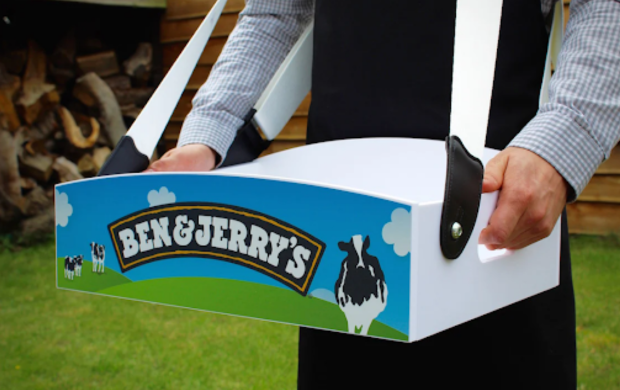The business structure of modern food supply chains relies on a system in which every product is transported under circumstances that protect its freshness, flavour and general integrity. These requirements are determined by regulatory structures, although the effective operation of safe distribution will be based on reliable systems that ensure consistent temperatures between collection and delivery. More and more manufacturers use specialized services, and a lot of them opt to hire a refrigerated courier in London in situations where they require consistent handling throughout every stage.

Ensuring Every Product Meets Legal Standards
Food businesses operate within strict rules that govern time, temperature and traceability. Continuous oversight helps prevent harmful bacteria from reaching unsafe levels by keeping items within approved limits from the moment they leave the supplier. Reliable transport plays an essential part. Vehicles equipped with advanced sensors and climate control maintain exact conditions that reduce spoilage while supporting compliance officers who monitor processes across different points in the chain.
Responding to Regulatory Scrutiny
Inspections examine how each organisation protects the public through systems that demonstrate meticulous attention to detail. Officials expect transparent documentation, accurate readings and consistent procedures. Companies that invest in technology supporting real time information place themselves in a strong position when authorities request evidence. Records from monitoring tools confirm whether every required range has been upheld throughout each journey.
Maintaining Temperature Integrity Throughout Transit
The management of food safety requires maintaining goods within the stipulated thermal window. Refrigeration systems backed by insulated interiors enable chilled or frozen goods to be kept in appropriate conditions no matter what the weather is like outside. The drivers who are trained to handle delicate cargo understand how to test controls, discern alerts and act swiftly in the event of alterations. This awareness fortifies the whole chain as it avoids premature degradation.
Smart Systems Supporting Accountability
The digital platforms gather data of sensors located strategically within transport compartments. This information gives us an ongoing overview of the surrounding environment of every batch of goods. Managers rely on this information so that they can identify patterns, rectify errors and analyze past performance. When questions arise, teams can access stored files, proving compliance to the necessary requirements.
Preventing Cross Contamination Through Clean Practices
Climate management goes hand in hand with sanitary procedures. After every job, the vehicles should be properly cleaned to prevent the transfer of residues from one load to another. The crews use approved solutions and prepare the spaces including the surfaces, shelving and equipment. Proper preparation also makes sure that new consignments embark on their journey in an environment that meets industry expectations.
Training Reinforces Best Practice
Employees with awareness of the science of microbial growth are in a better position to identify risk. Training classes take them through temperature charts, safe handling method and special guidelines of various types of food. This educational focus brings teams together with a common objective that focuses on societal health.
Strengthening Shelf Life and Reducing Waste
Stable environments slow natural breakdown, keeping food in a high quality condition for longer periods. Retailers then benefit from products with extended viability, which contributes to less waste and improved profitability. Distribution networks that protect temperature sensitive items contribute positively to sustainability aims by avoiding the unnecessary disposal of spoiled goods.
Supporting Supply Chains Facing Modern Pressures
Consumer preference on fresh options puts a lot of pressure on logistics companies to deliver fast without compromising on quality. Climate controlled cars help manufacturers in meeting these expectations by maintaining the texture and taste during all stages of the trip. Responsive systems also alleviate the pressure of seasonal heat, unexpected delays or complicated routes.
Food Safety Compliance as a Competitive Advantage
Companies where temperature management is a priority are trusted by customers who need to be sure of consistent performance. Evidence of consistent processes gives the traders, caterers and retailers confidence that their product will make it to shelves in the form the original producer had it. This confidence enhances relationships and provides a definite advantage in markets where reputation is crucial.
Commitment to High Standards Shapes the Future
Innovations in sensors, refrigeration engineering and fleet management continue to reshape how climate sensitive items travel between suppliers and final customers. Businesses that adopt these advances early will be better prepared to meet evolving regulations and consumer expectations. Each improvement enhances the safety of the wider food ecosystem, helping ensure that quality never falters as products move across the country.








